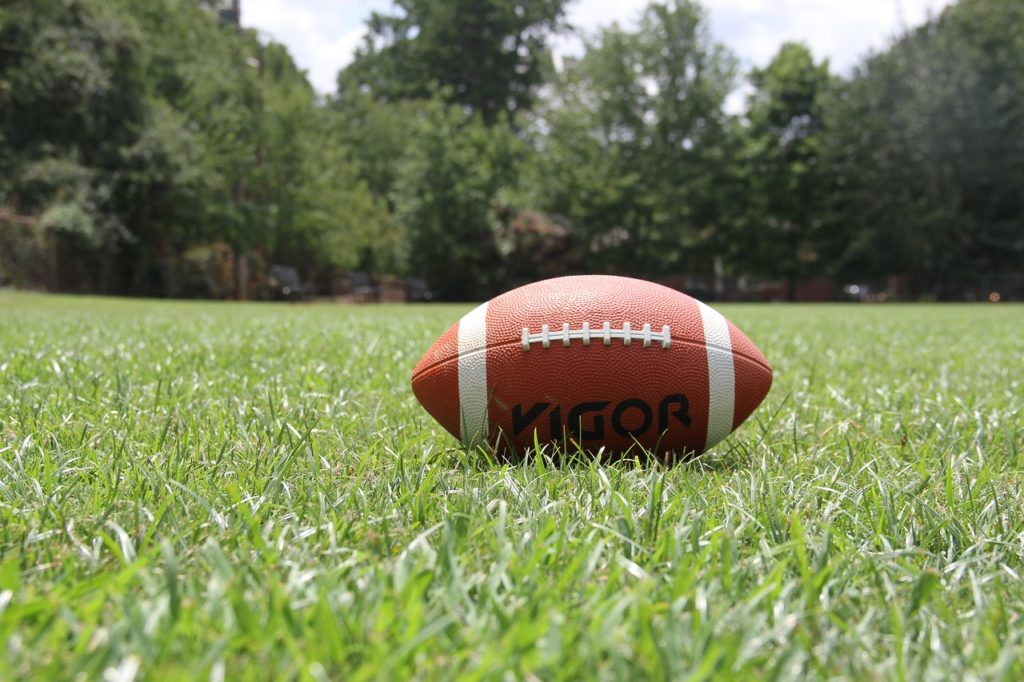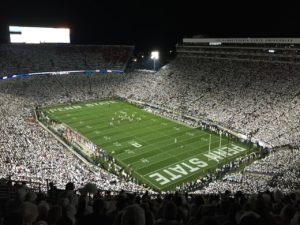- Calls to this hotline are currently being directed to Within Health, Fay or Eating Disorder Solutions
- Representatives are standing by 24/7 to help answer your questions
- All calls are confidential and HIPAA compliant
- There is no obligation or cost to call
- Eating Disorder Hope does not receive any commissions or fees dependent upon which provider you select
- Additional treatment providers are located on our directory or samhsa.gov
How to Manage an Eating Disorder During Super Bowl Party Season

Contributor: Staff at Carolina House
Many people consider major holidays such as Thanksgiving and Christmas to be detrimental to the emotional and mental health of individuals who have eating disorders. While individuals may have significant difficulty navigating these two holidays, there is another celebration early in the year that may cause those who have eating disorders to feel unprepared and vulnerable, the Super Bowl.
Many people partake in Super Bowl Sunday, an annual football championship that can prove difficult for some people to participate in. Some individuals may argue that this gathering is an optional social event rather than a major holiday associated with familial obligations. However, for those who are football fans or want to be with friends, declining to attend such celebrations can cause feelings of isolation and loneliness.
One of the ways that the Super Bowl can serve as a negative influence is through advertisements and the media. Research in the International Journal of Clinical Practice showed that food and beverages collectively accounted for more than 26% of advertisements during the past four Super Bowls.
This study also showed that across all advertisements during the past four Super Bowls, 14.5% of actors and actresses were overweight or obese. Of all the food and beverage advertisements during the four events, 58.3% showed the consumption of food and beverages.
These statistics show that the season of Super Bowl parties can be equally as demanding and anxiety-provoking as traditional food-centered holidays. Stress can come from advertisements focused on food along with advertisements that promote unrealistic perspectives of body image.
Individuals who have an eating disorder, such as binge-eating disorder or body dysmorphic disorder, should be prepared with strategies to assist in the management of symptoms during this time of year.
Attend parties on your terms
People may experience pressure to attend functions for birthdays, Thanksgiving, or Christmas due to feelings of obligation from family and relatives whom they may see only sparingly. On the other hand, Super Bowl parties are meant to be a fun way to spend time with friends, hopefully causing people who have eating disorders to feel less guilt if they do not attend.
A good way for someone who has an eating disorder to deal with such situations is to focus on their comfort level. If they attend a Super Bowl party and become uncomfortable and self-conscious, it may be better for them to stay only for a short time or occasionally take breaks to help manage their feelings. When someone goes to a Super Bowl party on their own terms, this may also involve bringing their own snacks or small meals to stay on track.
Develop a personal plan for the day
Specific and measurable treatment plans are vital to the success of individuals who receive professional care for eating disorders. However, many people neglect to continue making plans and setting goals for themselves after returning to the community and resume their daily lives.
Plans are a great way to help people organize their thoughts, set goals, and decide how they will address certain concerns. A personal plan can be made for specific events or situations where people feel that they need more structure and support to manage an eating disorder’s symptoms.
Seek specific and individualized care for your eating disorder during Super Bowl party season
 Super Bowl party season can be equally difficult for men and women who are struggling with eating disorders. People may not be as mindful of or attentive to their bodies, feelings, and eating habits.
Super Bowl party season can be equally difficult for men and women who are struggling with eating disorders. People may not be as mindful of or attentive to their bodies, feelings, and eating habits.
These behaviors may place both men and women at risk of developing an eating disorder. When seeking eating disorder treatment, it is especially important to receive care that considers all aspects of a person’s life. This may include participating in gender-inclusive programming that is designed to address their unique needs.
Super Bowl parties may bring a mixture of emotions for individuals who are struggling with eating disorders, but this type of event should be fun rather than overwhelming or intimidating. Be sure to check in with your social supports, develop a plan of action, and remain consistent with treatment services to assist in managing the symptoms of an eating disorder.
If you feel that these symptoms are becoming more difficult to deal with and your current aftercare options are not meeting your needs, consult your mental health professional to receive guidance about your next steps.
References:
Lydecker, J.A.; Izzo, A.; Spielberger, G.; and Grilo, C.M. (2018). “I only watch for the commercials”: Messages about weight, eating, and race in Super Bowl advertisements. Int J Clin Pract, 71(11). doi: 10.1111/ijcp.13026
About the Sponsor:
Carolina House is an eating disorder treatment center that serves people of all genders, ages 17 and older.
The opinions and views of our guest contributors are shared to provide a broad perspective of eating disorders. These are not necessarily the views of Eating Disorder Hope, but an effort to offer a discussion of various issues by different concerned individuals.
We at Eating Disorder Hope understand that eating disorders result from a combination of environmental and genetic factors. If you or a loved one are suffering from an eating disorder, please know that there is hope for you, and seek immediate professional help.
Published on October 2, 2020. Published on EatingDisorderHope.com
Reviewed & Approved on October 2, 2020, by Jacquelyn Ekern, MS, LPC

The EatingDisorderHope.com editorial team comprises experienced writers, editors, and medical reviewers specializing in eating disorders, treatment, and mental and behavioral health.

